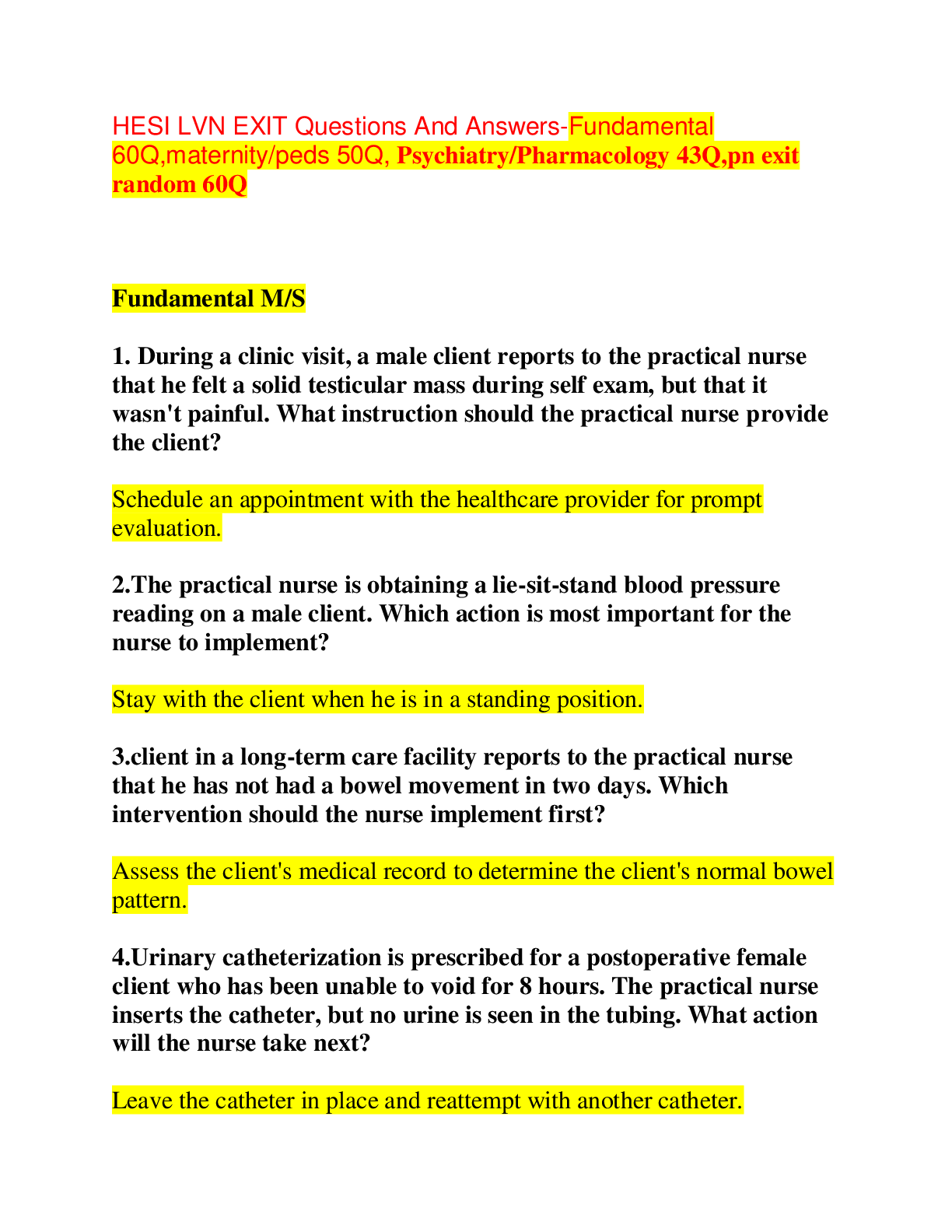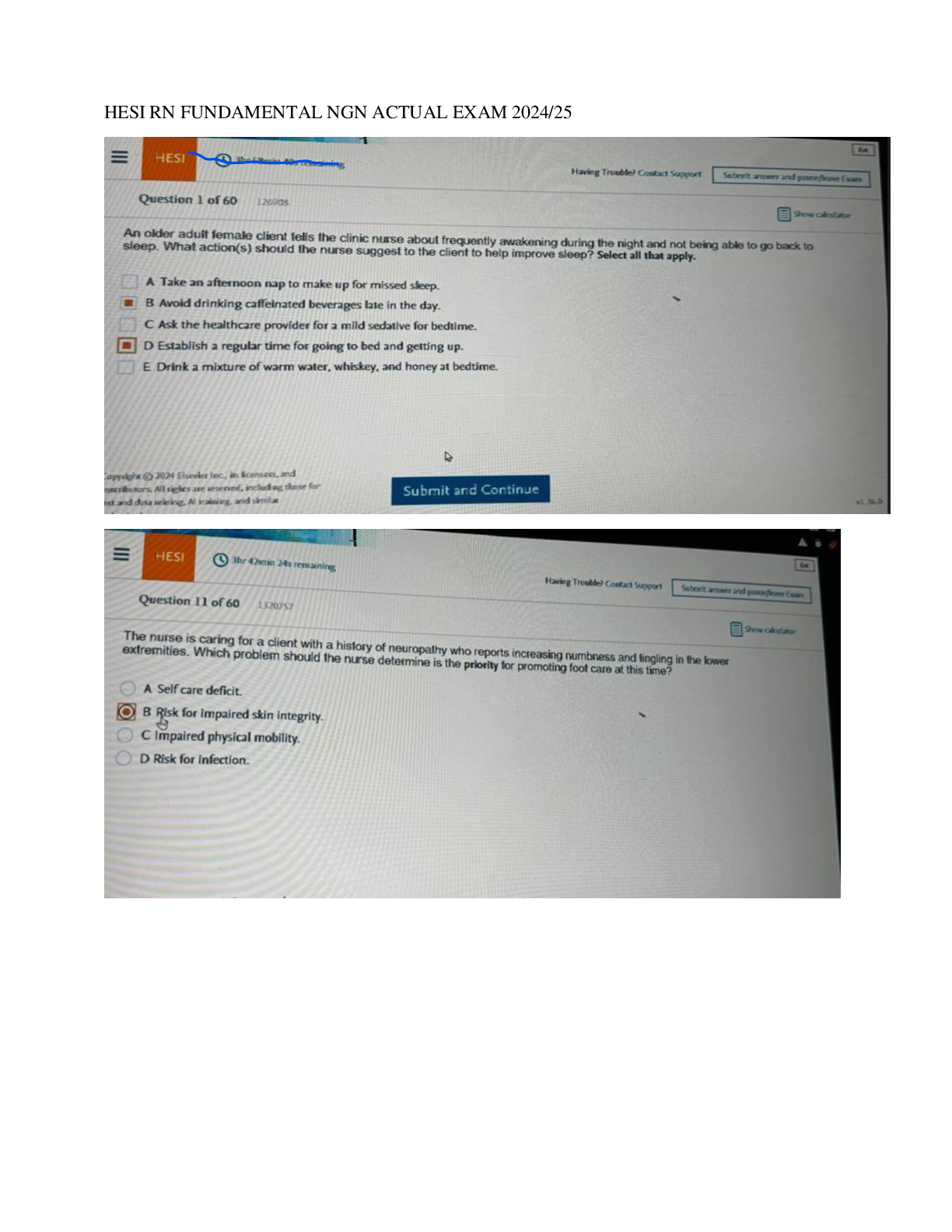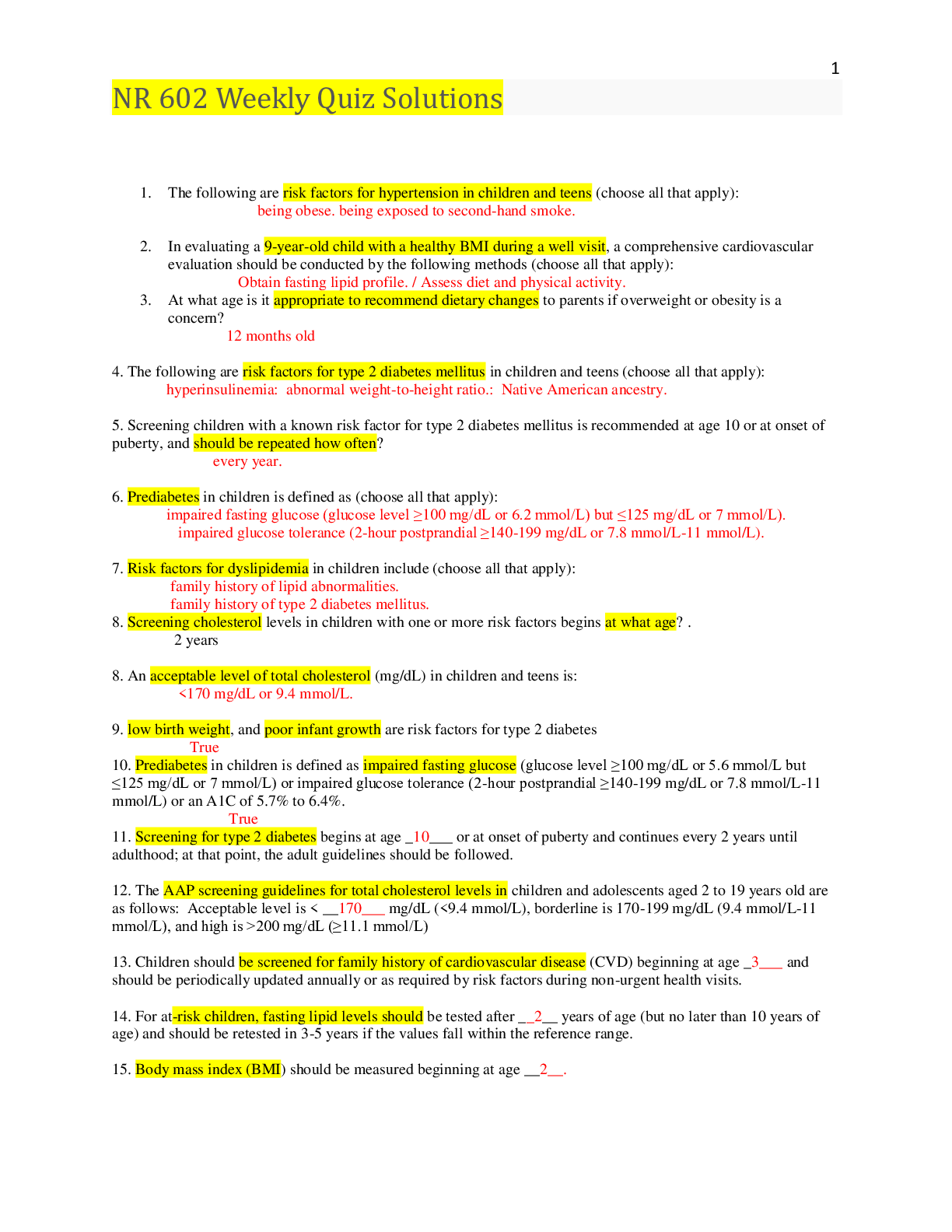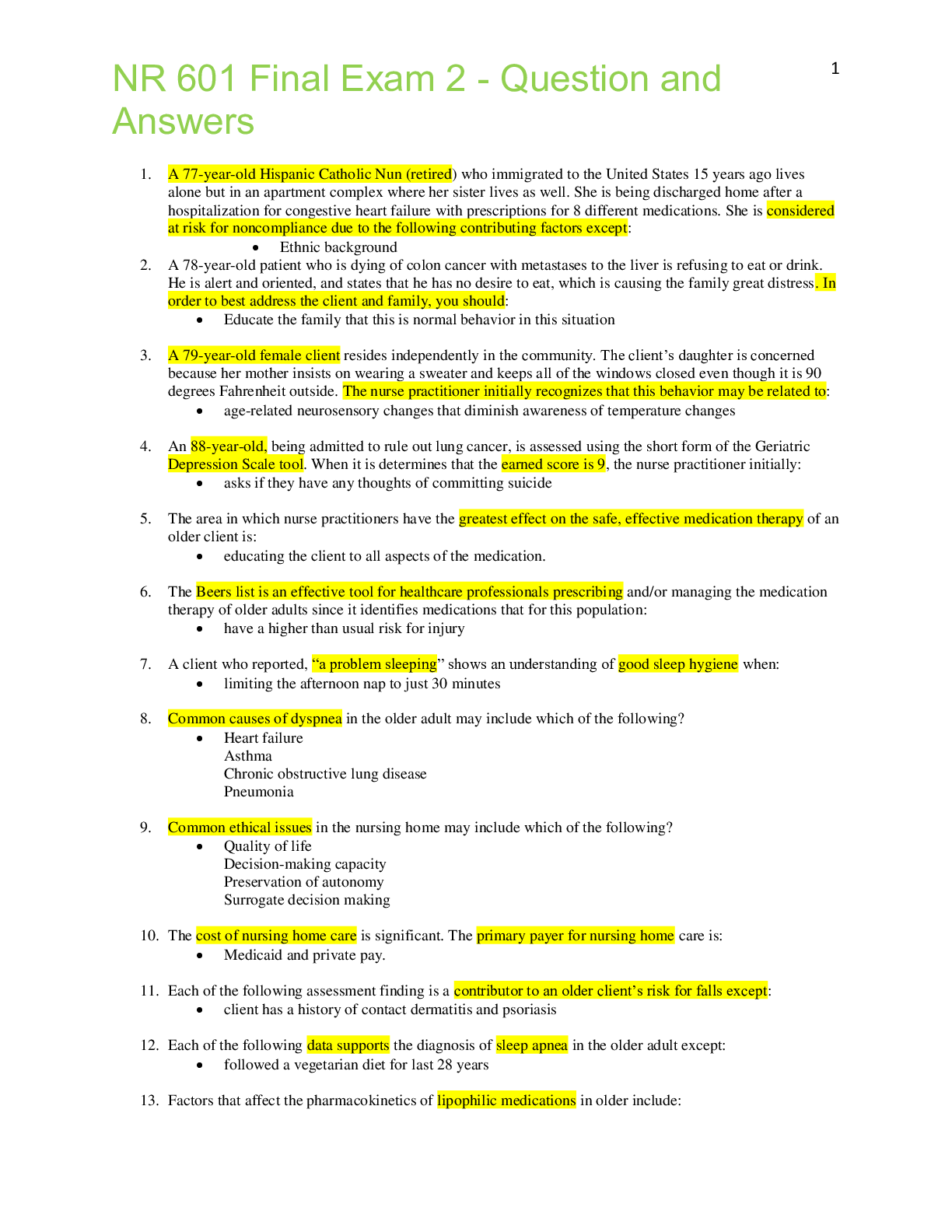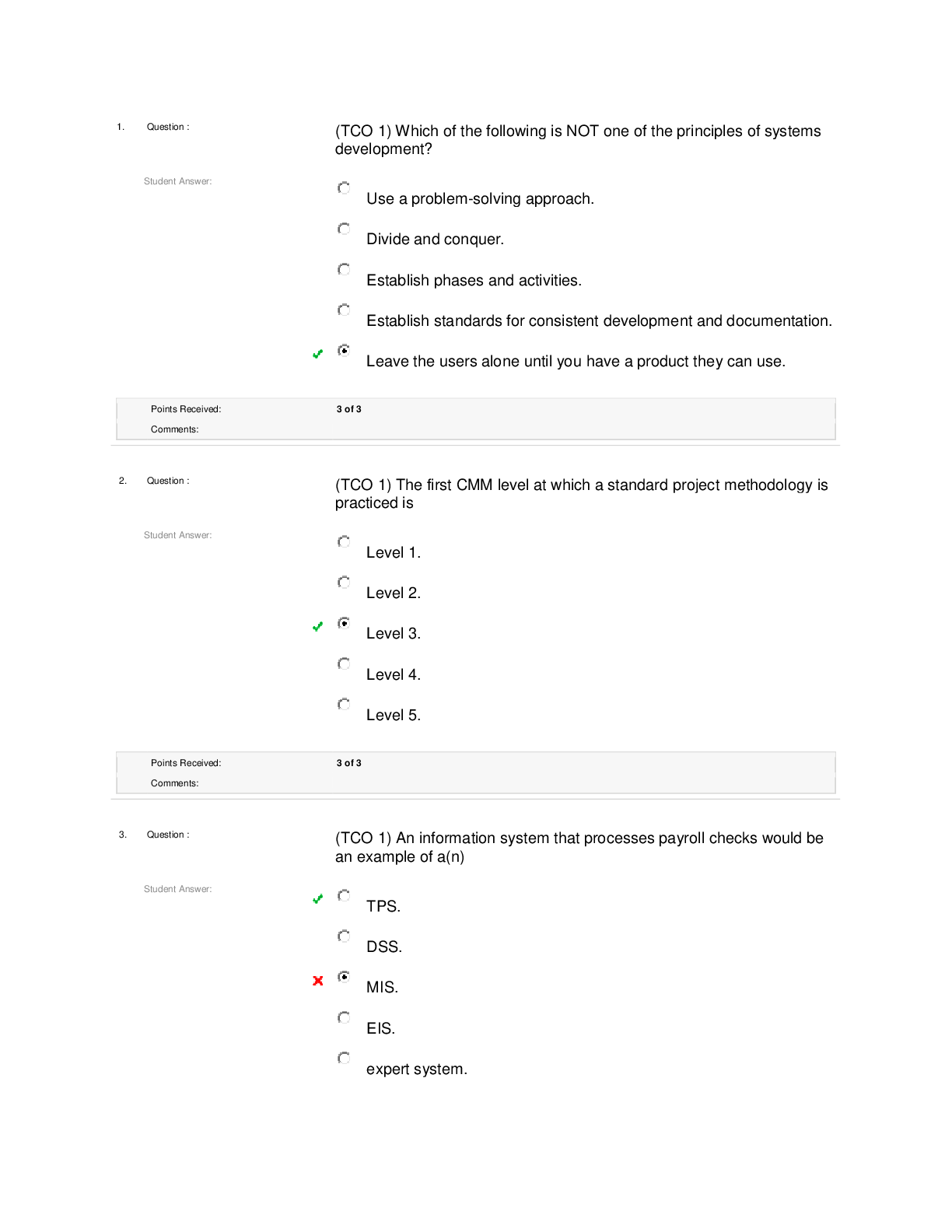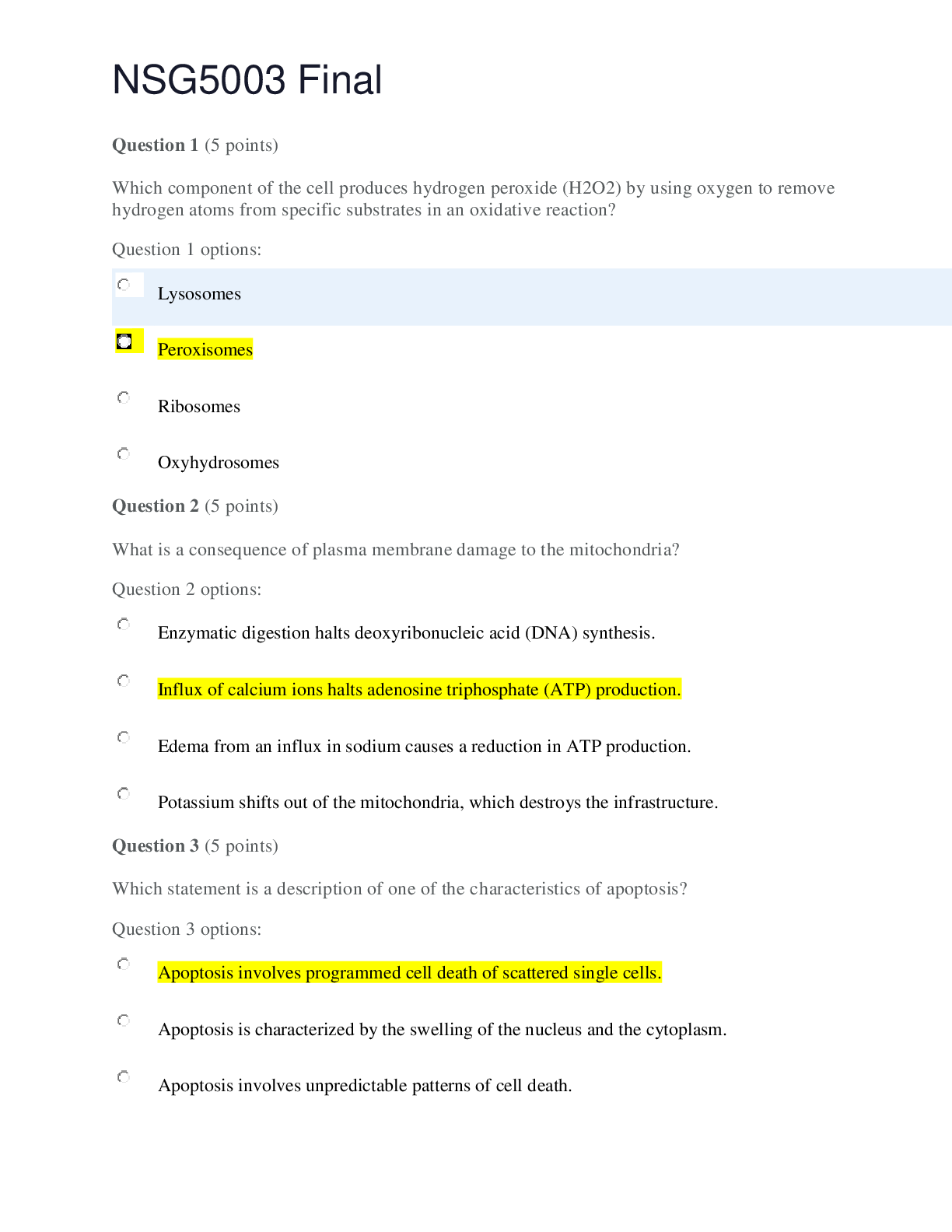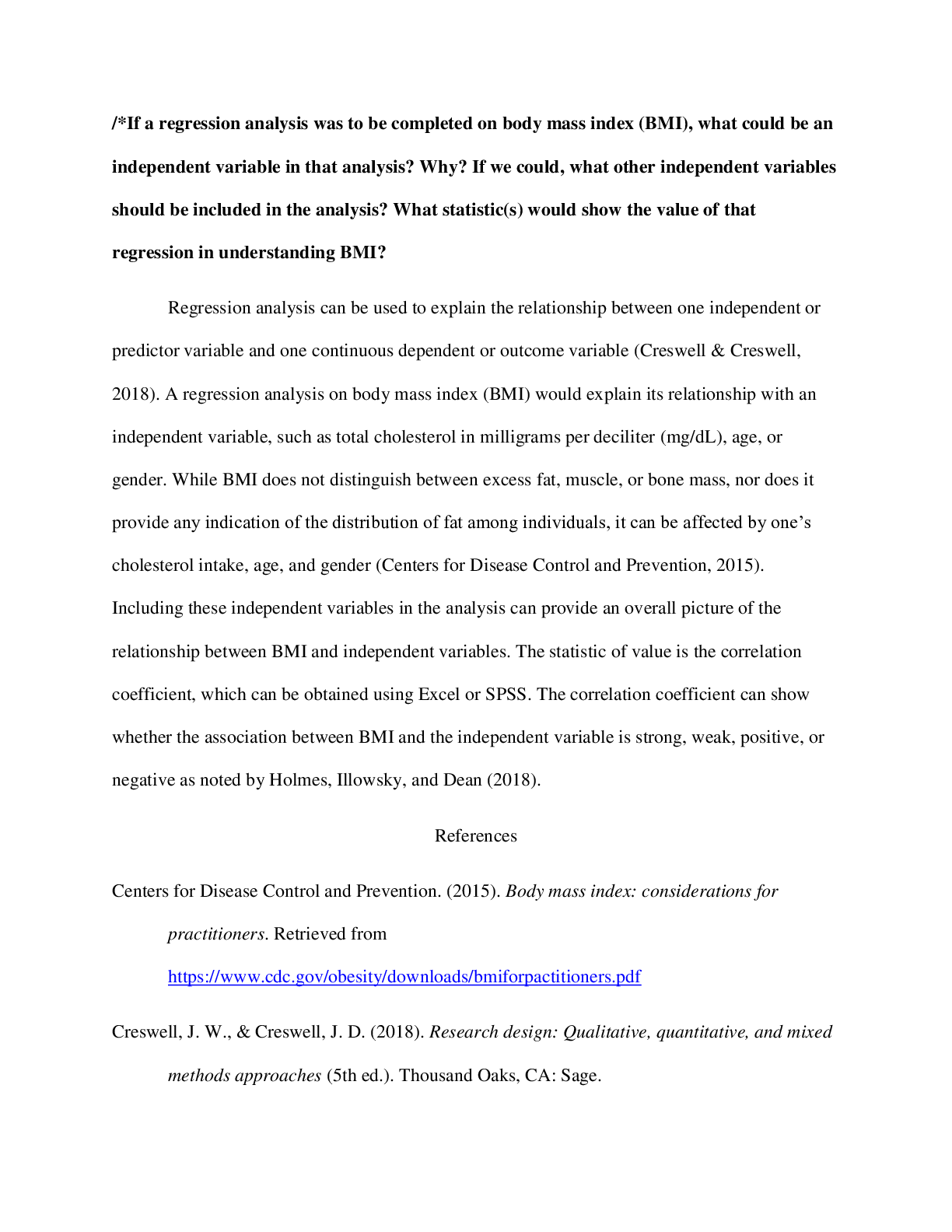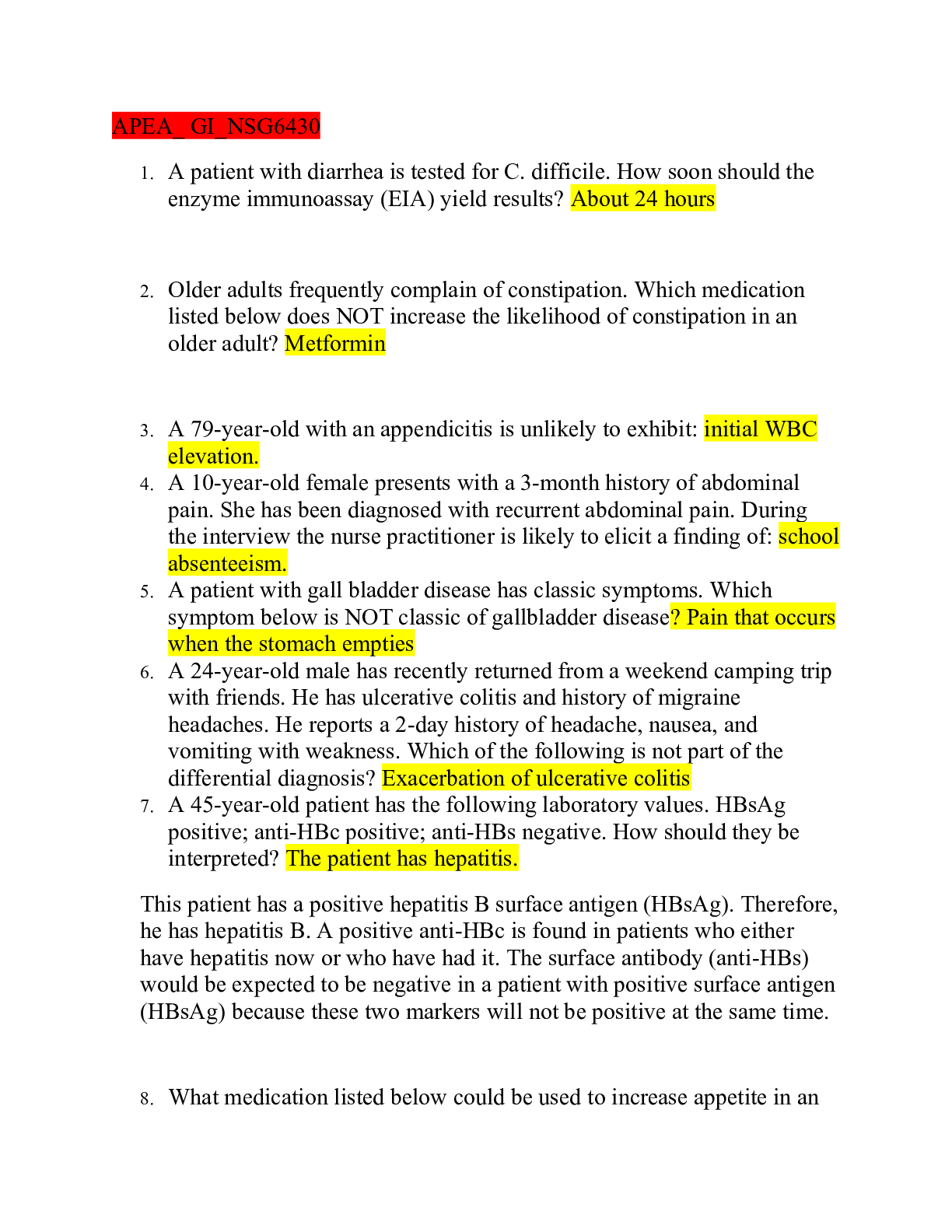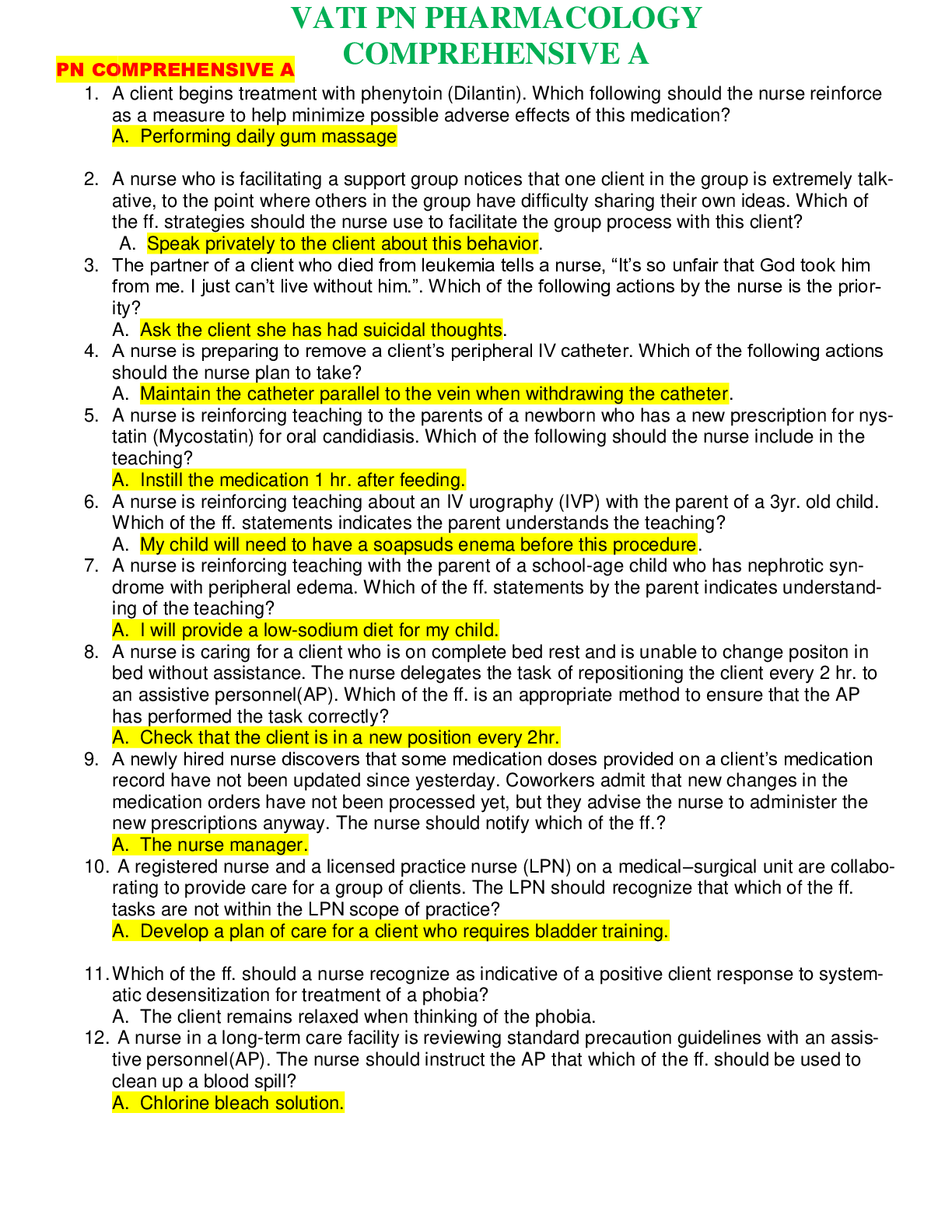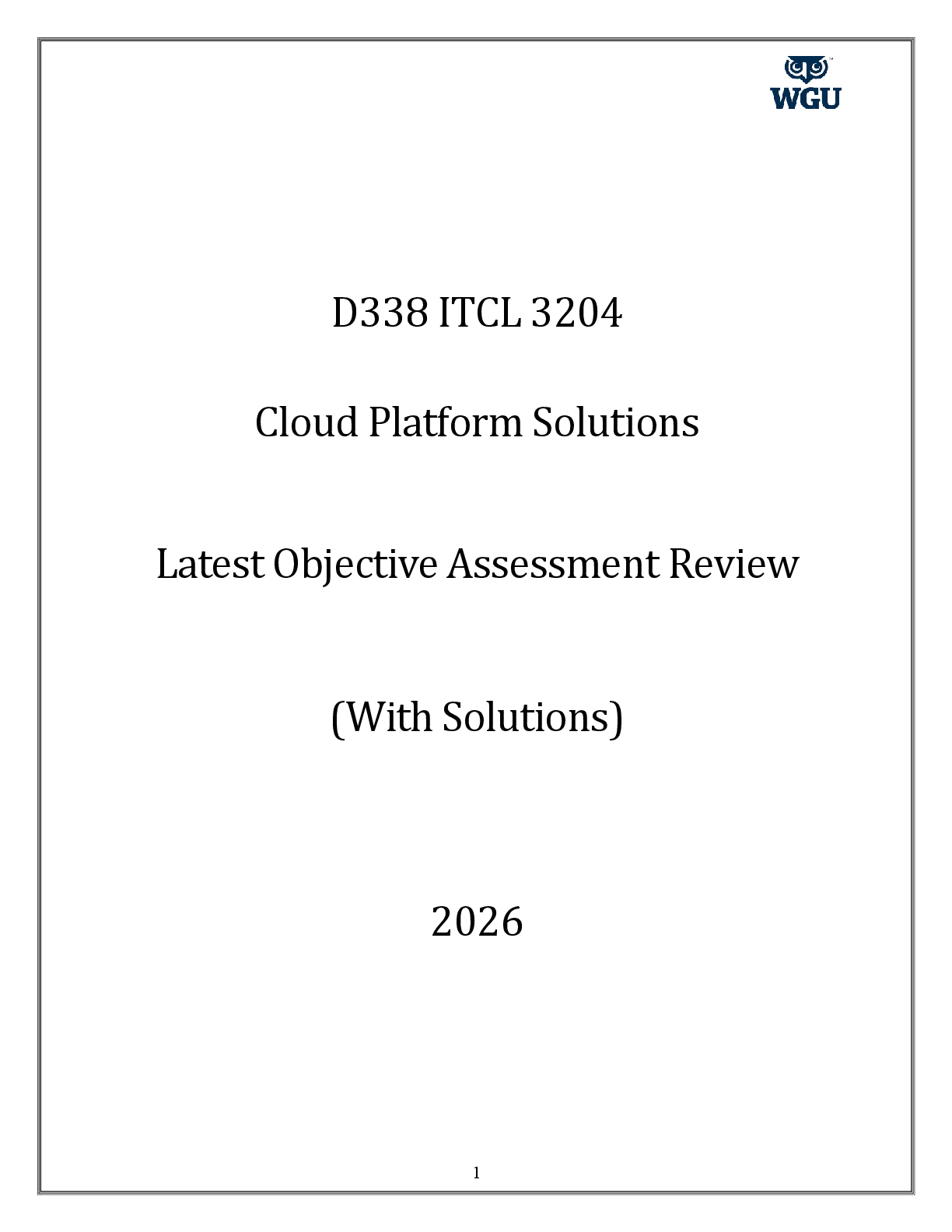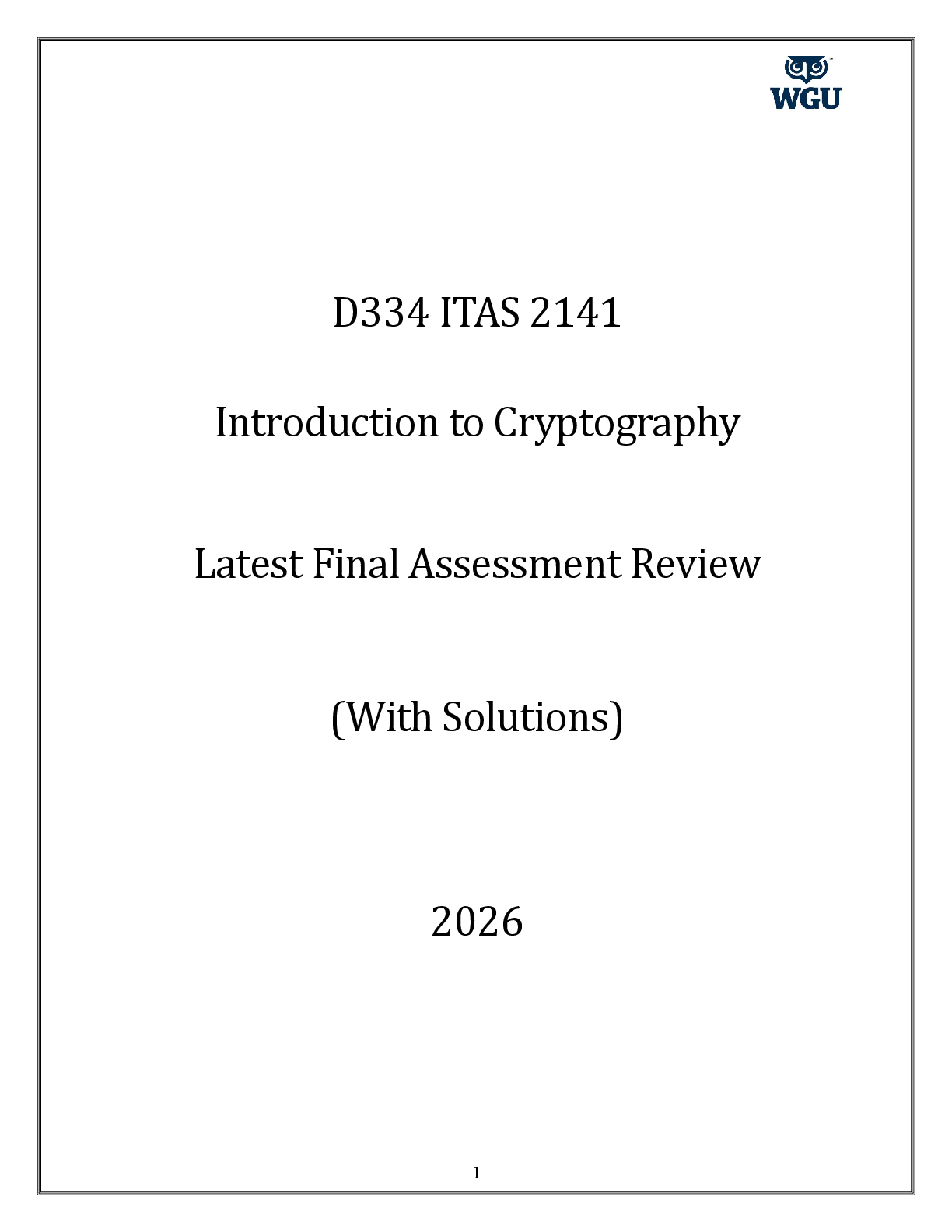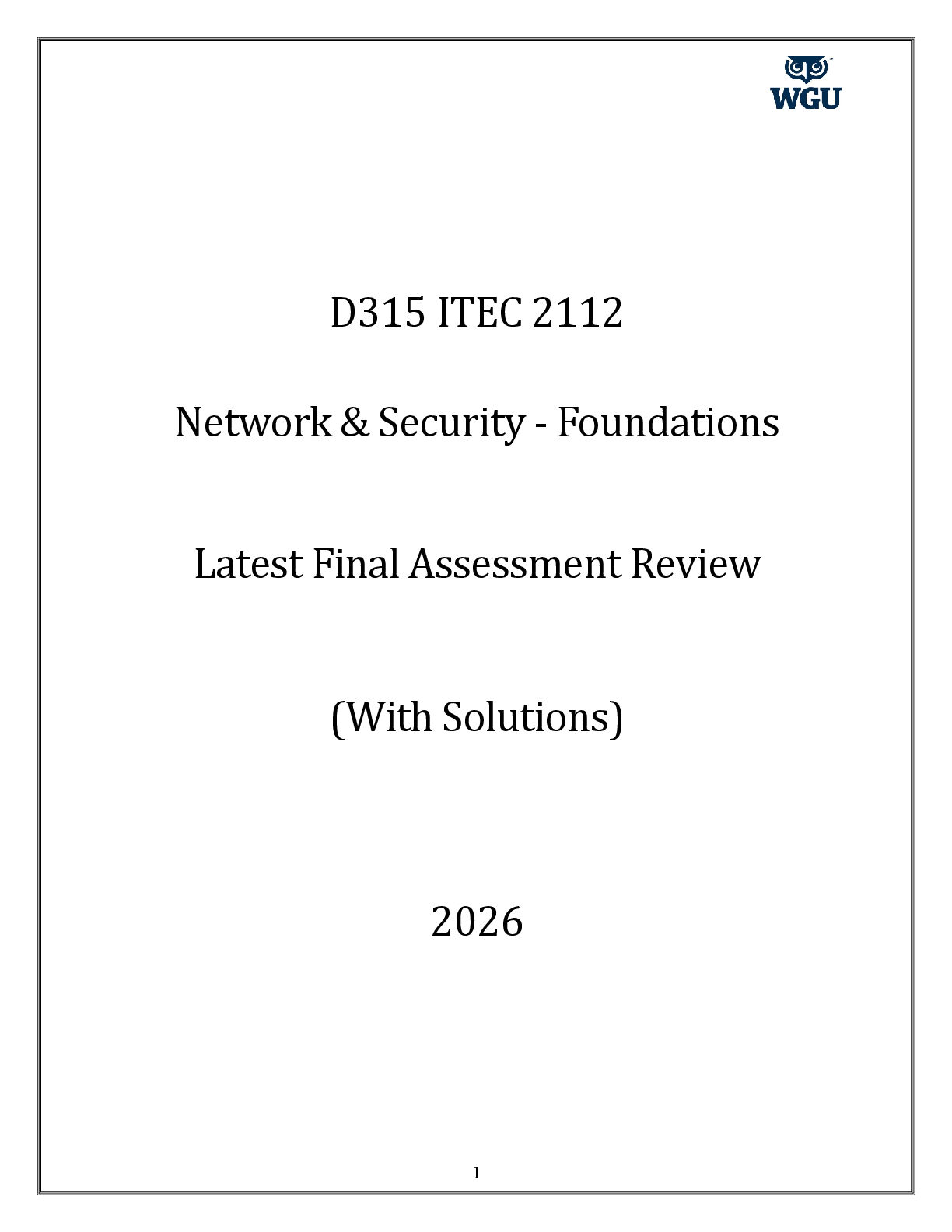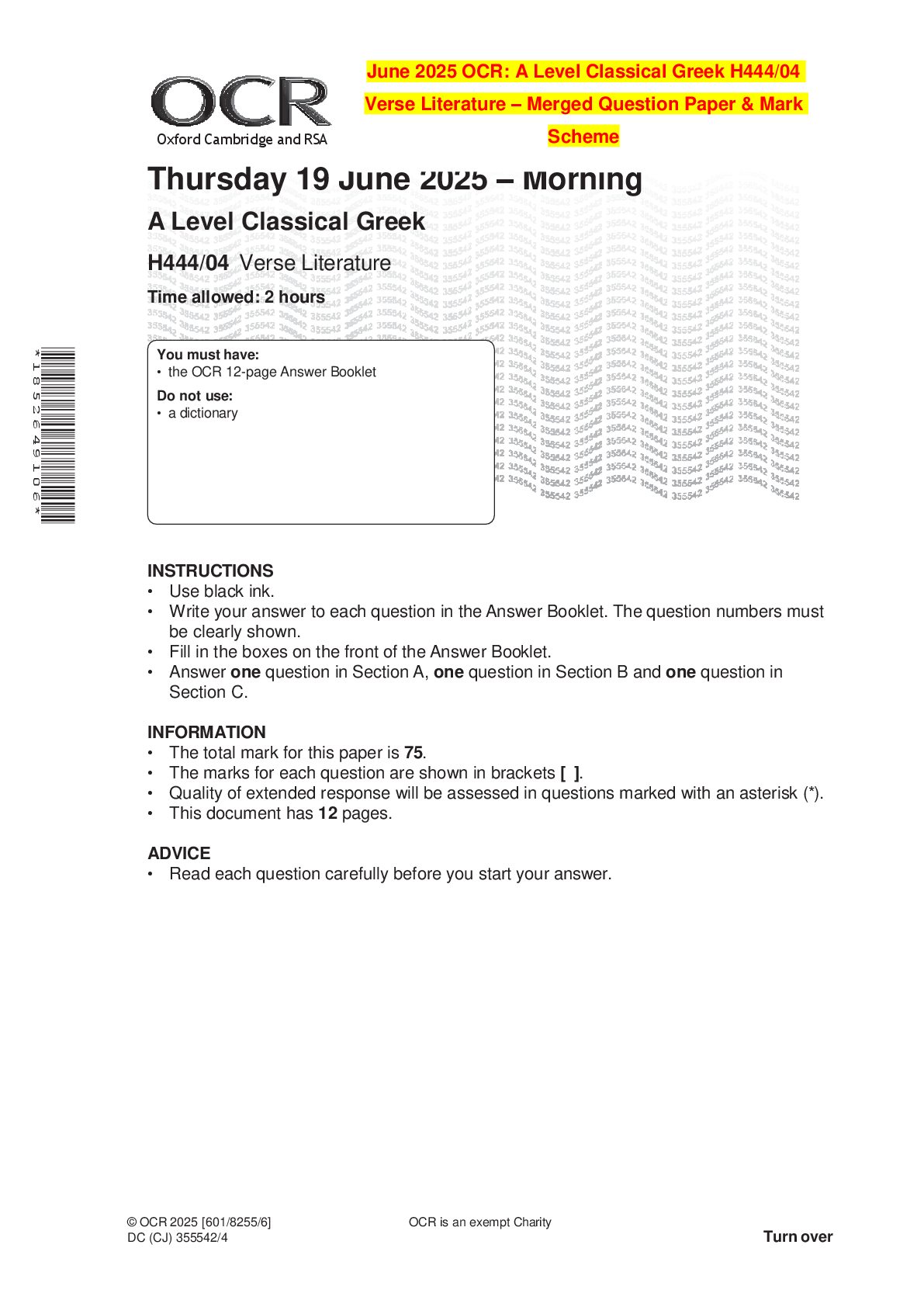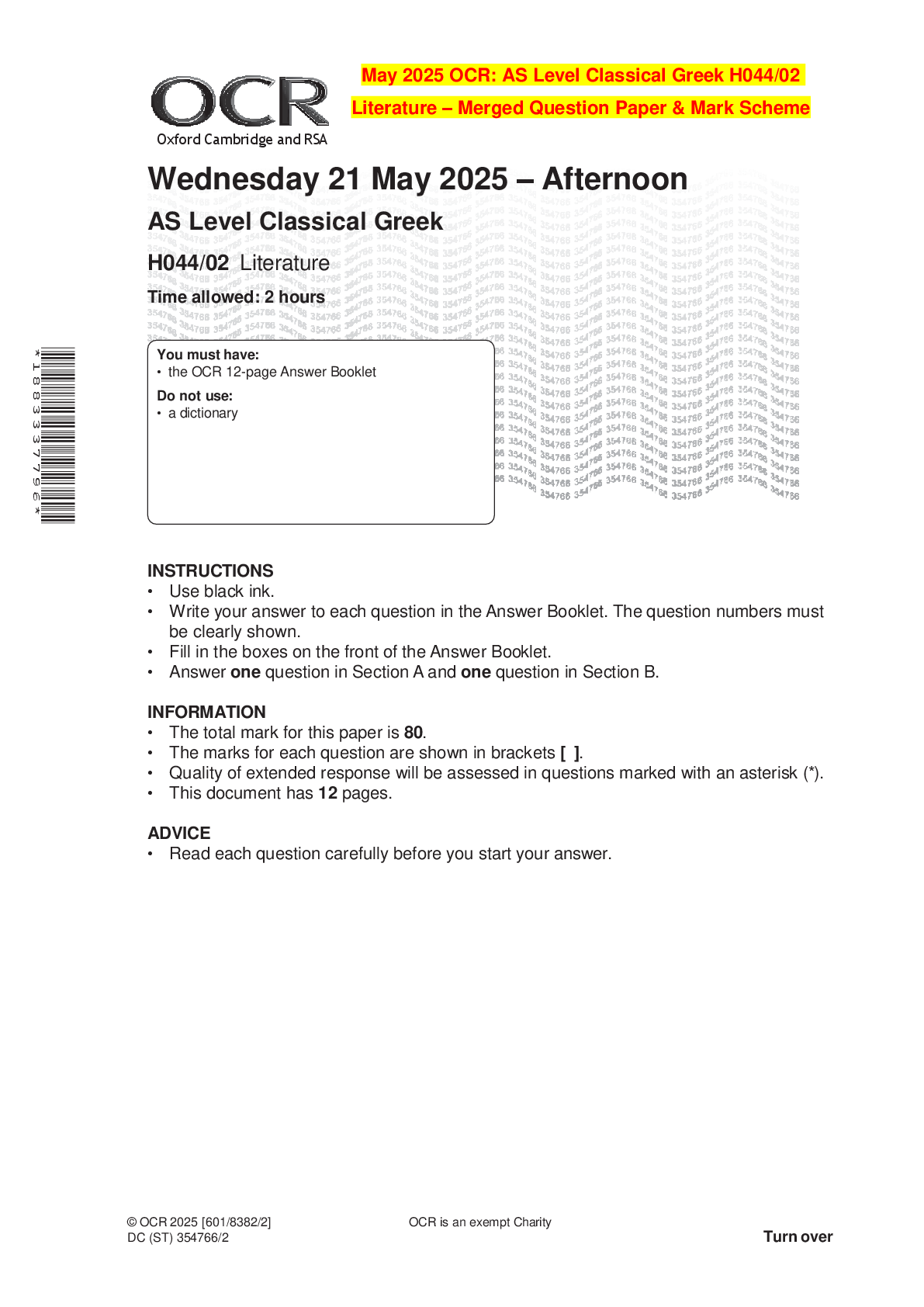When an unstable patient asks why it is necessary to add medications to his current regimen, the PMHNP’s best response would be:
The PMHNP is meeting with a new mother who would like to begin taking medication again to
...
When an unstable patient asks why it is necessary to add medications to his current regimen, the PMHNP’s best response would be:
The PMHNP is meeting with a new mother who would like to begin taking medication again to treat her bipolar depression; she is breastfeeding her 2-month old daughter. The PMHNP recognizes that which of the following medications is contraindicated for this patient?
Mr. Gordon is a middle-aged client who was started on antidepressant monotherapy for depression. After beginning this medication, the PMHNP noticed that this client seemed to swing into a hypomanic episode. What can the PMHNP infer from this behavior change?
A patient presents with frequent episodes of mania. Which statement describes an appropriate treatment approach for this patient?
The student inquires about antipsychotic medications. Which response by the PMHNP describes the factors that contribute to reduced risk of extrapyramidal symptoms (EPS) for patients who take antipsychotics?
After ordering flumazenil (Rumazicon) the PMHNP cautions the staff to monitor for which possible effect?
The PMHNP is caring for a patient who is taking antipsychotics heard the psychiatrist tell the patient that the patient would be placed on a different antipsychotic agent called an atypical antipsychotic. What neurotransmitters will this new medication work on?
While genes have potential to modify behavior, behavior can also modify genes. How do genes impact this process?
Mrs. Schwartzman is a 52-year-old client with schizophrenia and no established history of depression. When meeting with the PMHNP, she presents with apathy and withdrawn social behavior, and she reports a loss of joy from enjoyable activities since starting her new medication. What does the PMHNP infer from this encounter with the client?
A nursing student is seeking clarification on the use of anticonvulsants to treat depression and is unclear about most effective outcomes. Which of the following agents does the PMHNP convey as having uncertain outcomes?
As it relates to G-protein linked receptors, what does the PMHNP understand about medications that are used in practice?
A patient is seeking pharmacological treatment for smoking cessation. Which drug class does the PMHNP prescribe to the patient?
The PMHNP is caring for a patient with schizophrenia and is considering a variety of treatment approaches. The PHMNP selects a viable treatment that is consistent with the “dopamine hypothesis of schizophrenia.” What action does the PMHNP anticipate this treatment having on the patient?
Though medications have the ability to target neurotransmitter release into the synapse by the presynaptic neuron it is not always necessary. The PMHNP understands that this is because:
A patient is being prescribed a sedating antidepressant, but is concerned about weight gain. Which medication is most likely to be prescribed to addresses the patient’s concerns?
The PMHNP is caring for several patients who present with various symptoms and health issues. For which patient does the PMHNP prescribe pregabalin (Lyrica)?
Which statement about neurotransmitters and medications is true?
A patient is prescribed 50 mg of desvenlafaxine to take every other day for major depressive disorder. What does the PMHNP understand about this patient?
A patient with schizophrenia is given an inverse agonist that acts on the receptor 5HT and neurotransmitter serotonin. What is the rationale for prescribing a medication such as this?
A patient who was prescribed an MAO inhibitor is learning about dietary modifications. Which statement made by the PMHNP demonstrates proper teaching of the food-drug interactions for MAO inhibitors?
The PMHNP evaluates the patient for “fear conditioning” when he asks:
The PMHNP recognizes that which patient would be contraindicated for antidepressant monotherapy?
When completing this exam, did you comply with Walden University’s Code of Conduct including the expectations for academic integrity?
Mr. Gordon is a middle-aged patient who is taking antipsychotics. When meeting with the PMHNP, he reports positive responses to the medication, stating, “I really feel as though the effects of my depression are going away.” Which receptor action in antipsychotic medications is believed to be the most beneficial in producing the effects described by Mr. Gordon?
The PMHNP understands that which mechanism contributes to a worse tolerability profile for patients taking tricyclic antidepressants (TCAs)?
The PMHNP is assessing a client in the emergency room. The client shares that he has been on lithium for many years. What blood test does the PMHNP order?
A noncompliant patient states, “Why do you want me to put this poison in my body?” Identify the best response made by the psychiatric-mental health nurse practitioner (PMHNP).
Mrs. Trevor is a 44-year-old patient who does not have a diagnosis of schizophrenia but occasionally reports symptoms of psychosis, followed by severe fatigue. Mrs. Trevor inquires about the use of amphetamines to help with her energy levels. Which response made by the PMHNP is most appropriate?
A patient is diagnosed with bipolar disorder and is currently taking carbamazepine (Tegretol), aripiprazole (Abilify), and melatonin. The PMHNP has just written an order to discontinue the carbamazepine (Tegretol) for drug-induced thrombocytopenia. The PMHNP is aware that his next best action is to:
A 25-year-old female patient is being prescribed milnacipran to treat fibromyalgia, and expresses concern regarding “how she will feel and look” from taking the medicine. Which statement correctly describes the side effects as a result of taking this medication?
What is accurate about the clinical description of psychosis?
The nurse education knows that teaching was effective when one of the students compares fluvoxamine to sertraline and notes which of the following similarities?
The PMHNP is considering prescribing a 49-year-old male clozapine (Clozaril) to treat his schizophrenia and suicidal ideations. The PMHNP is aware that which factor may impact the dose needed to effectively treat his condition:
Mr. Gutier is 72 years old with anxiety and depressive symptoms. His PMHNP is prescribing lorazepam (Ativan). What does the PMHNP understand regarding this prescription?
A patient diagnosed with PTSD is prescribed propranolol (Inderal) and the PMHNP understands that he was prescribed this medication for what purpose:
A patient recently transferred following a suicide attempt has a history of schizophrenia, depression, and fibromyalgia. He is currently taking Amitriptyline (Elavil), Lisinopril, aspirin, and fluoxetine (Prozac). When assessing the psychiatric medications and the reason for admission, what would be the best course of action for the PMHNP with this client?
Which statement made by the PMHNP exemplifies correct teaching of physiological effects in the body?
During assessment a patient states “Why are you asking me about my heart, I am here for my head”, the PMHNP’s best response is:
Mrs. Schwartzman is a 52-year-old patient with schizophrenia and no established history of depression. When meeting with the PMHNP, she presents with apathy and withdrawn social behavior, and she reports a loss of joy from enjoyable activities. What does the PMHNP infer from this encounter with the patient?
The PMHNP is meeting with a new mother who would like to begin taking medication again to treat her bipolar depression; she is breastfeeding her 2-month old daughter. The PMHNP recognizes that which of the following medications is contraindicated for this client?
A nursing student is seeking clarification on the use of anticonvulsants to treat bipolar depression and is unclear about which anticonvulsants have the most effective outcomes in treating bipolar depression. Which of the following anticonvulsants is NOT used for treating bipolar depression?
There are a number of endocrine reactions that accompany fear. A quick boost of cortisol may enhance survival when encountering a real but short-term threat. However, chronic elevations in cortisol can lead to increased medical comorbidities. Which of the following medical conditions may be related to these persistent cortisol elevations?
Ms. Harlow is a 42-year-old patient who is prescribed a drug that acts on ionotropic receptors. She is curious about the effects of the drug and how it will act on her symptoms. Which statement made by the PMHNP
[Show More]



